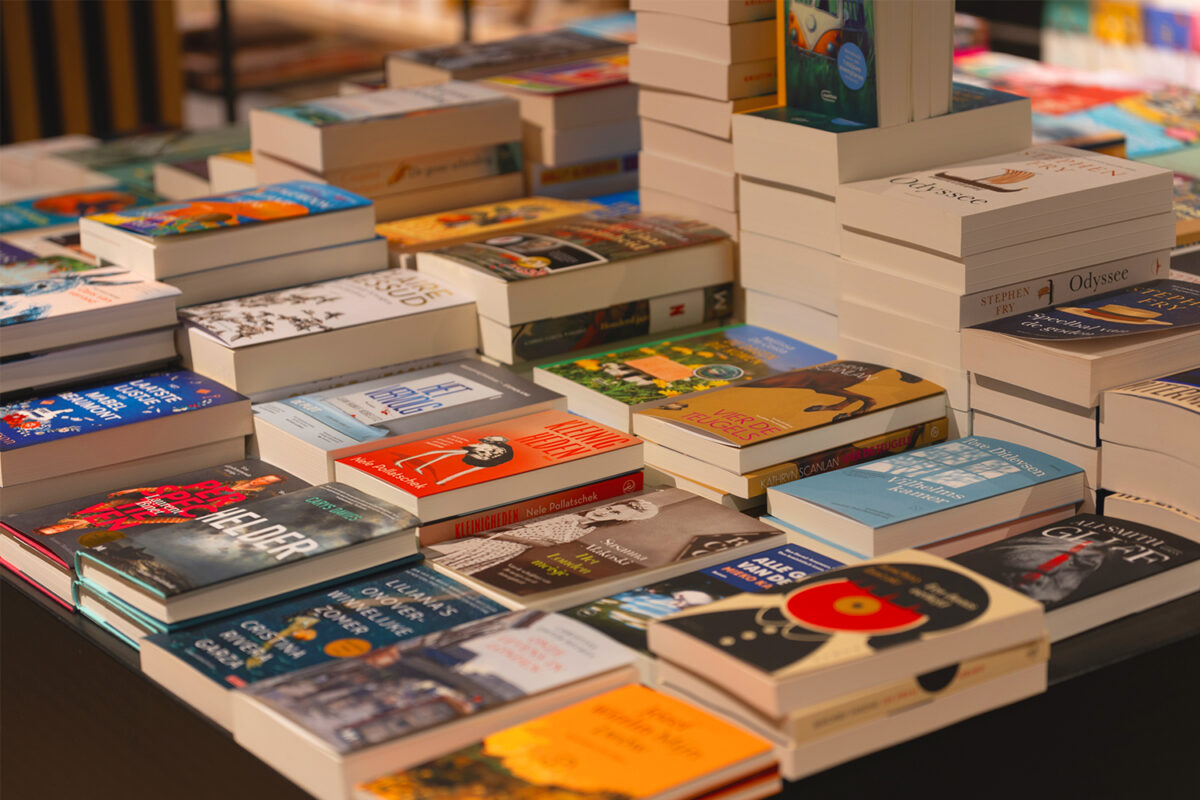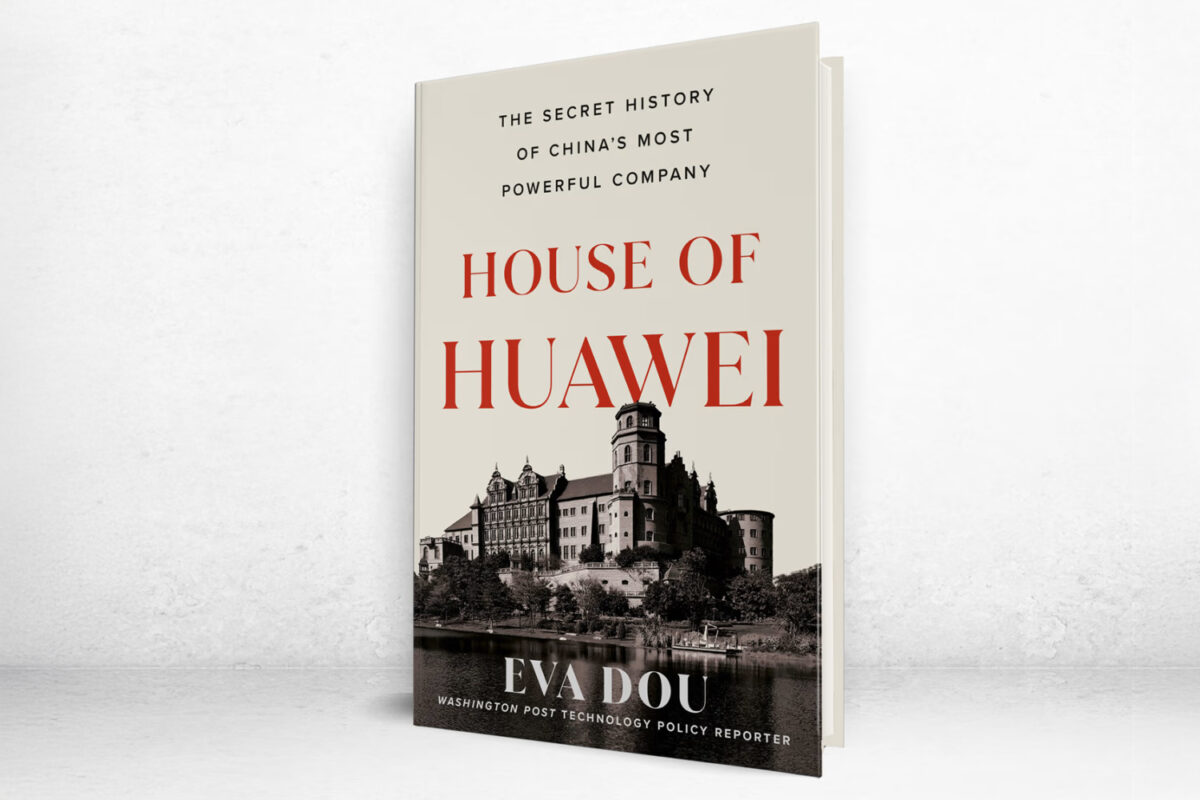As the end of 2022 fast approaches this serves as a good opportunity to share some of the favourite books that have informed our analysts.
The Great Awakening vs the Great Reset
Alexander Dugin
2021
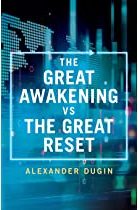 The Russia-Ukraine conflict of 2022 has brought special attention to Alexander Dugin, now dubbed as the“… most dangerous philosopher in the world.” The political scientist known as “Putin’s Rasputin” or “Putin’s Brain”, has made waves with his foreboding book, “The Great Awakening vs The Great Reset”. In it he declares open war against the twin diseases of liberalism and Western political modernity. The book is short read at less than a hundred pages but explains the logical conclusion of liberal capitalism in away that few books have managed to do. Perhaps Dugin’s Russian background and the hostility his nation has faced from Europe and the US has been able to give Dugin a perspective that is rarely expressed by Western critics of capitalism. However, it does appear that Dugin’s understanding of geopolitics is slightly misplaced or hopeful as India continues to directly serve the US political agenda to counter China and Saudi Arabia is in fact rushing to liberalise not just its economy but also its social systems and culture. His explanation for what unadulterated nominalism will achieve for the globalists personally is also somewhat lacking as it is difficult to accept that they are simply philosophical purists without other motives, although one can draw their own conclusions. His “Fourth Political Theory” also seemed to read as little more than, as he puts it, an “…invitation to search for the alternative to this falling liberalism in decay” rather than a comprehensive system of any sort. It gives the impression that while he has identified and analysed the problem and knows something has to be done to fight back, he doesn’t know what exactly. Despite these gaps, the book is a fascinating read and helps contextualise some of the more disturbing policies we are seeing from world leaders domestically and internationally.
The Russia-Ukraine conflict of 2022 has brought special attention to Alexander Dugin, now dubbed as the“… most dangerous philosopher in the world.” The political scientist known as “Putin’s Rasputin” or “Putin’s Brain”, has made waves with his foreboding book, “The Great Awakening vs The Great Reset”. In it he declares open war against the twin diseases of liberalism and Western political modernity. The book is short read at less than a hundred pages but explains the logical conclusion of liberal capitalism in away that few books have managed to do. Perhaps Dugin’s Russian background and the hostility his nation has faced from Europe and the US has been able to give Dugin a perspective that is rarely expressed by Western critics of capitalism. However, it does appear that Dugin’s understanding of geopolitics is slightly misplaced or hopeful as India continues to directly serve the US political agenda to counter China and Saudi Arabia is in fact rushing to liberalise not just its economy but also its social systems and culture. His explanation for what unadulterated nominalism will achieve for the globalists personally is also somewhat lacking as it is difficult to accept that they are simply philosophical purists without other motives, although one can draw their own conclusions. His “Fourth Political Theory” also seemed to read as little more than, as he puts it, an “…invitation to search for the alternative to this falling liberalism in decay” rather than a comprehensive system of any sort. It gives the impression that while he has identified and analysed the problem and knows something has to be done to fight back, he doesn’t know what exactly. Despite these gaps, the book is a fascinating read and helps contextualise some of the more disturbing policies we are seeing from world leaders domestically and internationally.
Wasif Chaudry
Liberalism and Its Discontents
Francis Fukuyama
2022
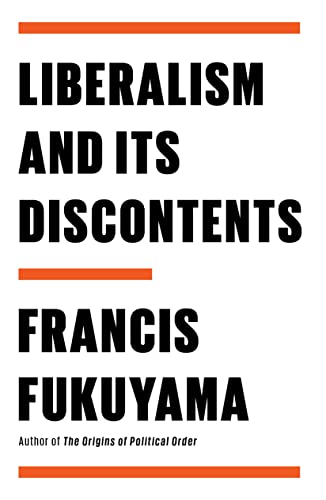
Francis Fukuyama’s latest book comes in the context of challenging times for liberals. The limits of liberalism have been brutally exposed. Many liberal values, including pluralism, tolerance, equality and individuality, have been shown to be more fragile than we knew. Admitting that “It’s clear liberalism has been in retreat in recent years”, Fukuyama’s basic message is that liberal democracy is the best way to arrange a society, but that much more attention has to be paid to ameliorating some of the downsides of neoliberal economic policies (accommodating Leftist critiques) and more respect has to be paid to traditional views and forms of life (accommodating conservative concerns). For Fukuyama, the fundamental tenets of liberalism — personal autonomy, individual rights, equality and property ownership — are sacrosanct and hence beyond critique – believing in the moral superiority of liberalism. In his analysis, the problem liberalism faces is that it has been taken to the extremes by both the right and the left in the context of “grotesque inequalities” caused by neoliberal economic policies. Fukuyama attributes these to “neoliberalism”, the belief in unfettered markets as the means of delivering the goal of consumer welfare. This book does not supply all, or enough, of the solutions and leaves you with more unanswered questions. Fukuyama’s latest critique finds the problems in the implementation of Liberal ideals rather than liberal values themselves.
Shabih Ul Hasan
How They Rule the World: The 22 Secret Strategies of Global Power
Pedro Baño
April 2019
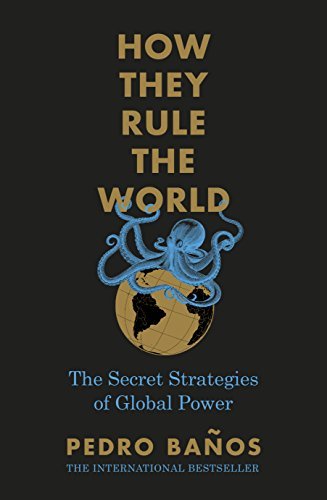 How They Rule the World is a bestseller written by the Spanish Colonel Pedro Baños. The book is an essay on the techniques and strategies used to dominate the geopolitics field. When one thinks about power, one usually thinks of domination through hard power, through the coercion of armies. But Colonel Baños’ essay reveals a series of techniques used by different power groups, both states, and economic powers. Use of force is the last resort that is used after having tried to control the different global players through other techniques. The book shows the readers, with abundant bibliographical references, that the economy is the main vector that moves the relations between global actors, and gives the readers references on why subjugating a country through the economy is an effective method of control. Baños also gives the readers references on how the media induce audiences to have their thoughts aligned with the global power groups will.
How They Rule the World is a bestseller written by the Spanish Colonel Pedro Baños. The book is an essay on the techniques and strategies used to dominate the geopolitics field. When one thinks about power, one usually thinks of domination through hard power, through the coercion of armies. But Colonel Baños’ essay reveals a series of techniques used by different power groups, both states, and economic powers. Use of force is the last resort that is used after having tried to control the different global players through other techniques. The book shows the readers, with abundant bibliographical references, that the economy is the main vector that moves the relations between global actors, and gives the readers references on why subjugating a country through the economy is an effective method of control. Baños also gives the readers references on how the media induce audiences to have their thoughts aligned with the global power groups will.
Adnan Khan
Russia: What everyone wants to know
Timothy Coltan
2016
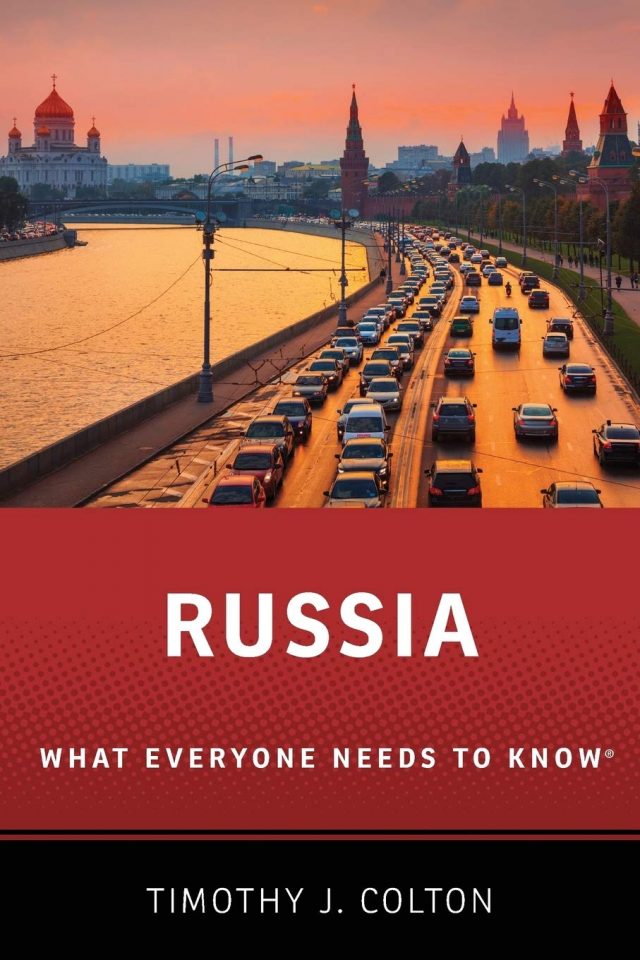 This book is your one stop shop on Russian affairs, it is the quickest way to bring yourself up to speed. The book is written in the form of Q&A’s which make it much easier to understand and it’s organised into chapters from Russia’s origins, its people, communism and the rise of Putin. The book provides a comprehensive analysis on Russia and the Q&A format provides a refreshing new approach to explaining what can be a complex subject.
This book is your one stop shop on Russian affairs, it is the quickest way to bring yourself up to speed. The book is written in the form of Q&A’s which make it much easier to understand and it’s organised into chapters from Russia’s origins, its people, communism and the rise of Putin. The book provides a comprehensive analysis on Russia and the Q&A format provides a refreshing new approach to explaining what can be a complex subject.
Abdul Latif
Disunited Nations: The Scramble for Power in an Ungoverned World
Peter Zeihan
August 2020
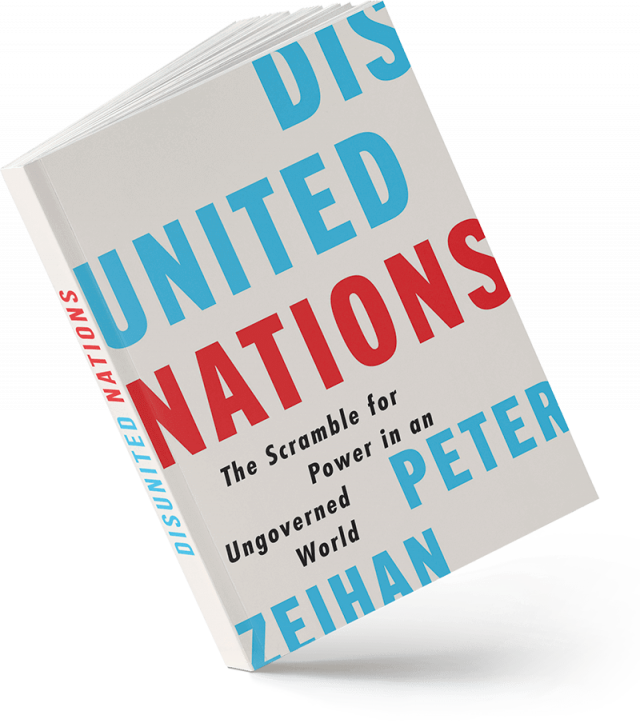 Disunited Nations is Peter Zeihan’s third book on geopolitics. He predicts that a massive upheaval in the global order is underway as America no longer cares to maintain the post-World War II order. He cites the ending of the Cold War, America’s energy independence (due to the shale boom), and a pro-isolationist electorate (both on the right and the left) as the key reasons for this shift. In the post American world, he analyses how specific countries, including China, Japan, Russia, Germany, France, Iran, Saudi Arabia, Turkey, Brazil and Argentina will fare. Zeihan also outlines the “misshape” of the US foreign policy to come. As with his other books, readers get a short course in demographics and geography. Zeihan’s thesis is helpful in imagining a world without American interference. It helps to appreciate how raw geopolitical factors – land, sea, populations and so on – can enable nations, like Turkey, to take their political destinies into their own hands.
Disunited Nations is Peter Zeihan’s third book on geopolitics. He predicts that a massive upheaval in the global order is underway as America no longer cares to maintain the post-World War II order. He cites the ending of the Cold War, America’s energy independence (due to the shale boom), and a pro-isolationist electorate (both on the right and the left) as the key reasons for this shift. In the post American world, he analyses how specific countries, including China, Japan, Russia, Germany, France, Iran, Saudi Arabia, Turkey, Brazil and Argentina will fare. Zeihan also outlines the “misshape” of the US foreign policy to come. As with his other books, readers get a short course in demographics and geography. Zeihan’s thesis is helpful in imagining a world without American interference. It helps to appreciate how raw geopolitical factors – land, sea, populations and so on – can enable nations, like Turkey, to take their political destinies into their own hands.
Malik Abu Luqman
Superabundance: The Story of Population Growth, Innovation, and Human Flourishing on an Infinitely Bountiful Planet
Marian L. Tupy and Gale L. Pooley
2022
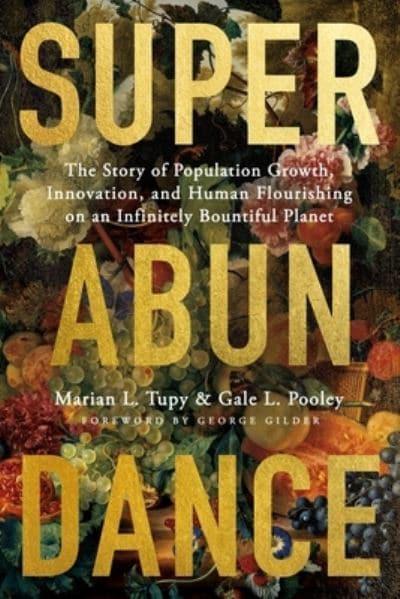 For long the Malthuist theory that population growth makes resources scarce has dominated economics. After analysing the prices of hundreds of commodities, goods, and services spanning two centuries, the authors of Superabundance found that resources became more abundant as the population grew. That was especially true when they looked at “time prices,” which represent the length of time that people must work to buy something. To their surprise, the authors also found that resource abundance increased faster than the population―a relationship that they call “superabundance.” On average, every additional human being created more value than he or she consumed. The reason why is that more people produce more ideas, which lead to more inventions. People then test those inventions in the marketplace to separate the useful from the useless. At the end of that process of discovery, people are left with innovations that overcome shortages, spur economic growth, and raise standards of living. This book presents in much detail and plenty of historical examples that population growth is good, rather than dark and evil and the fact that it goes against the dominant narrative, makes it well worth a read.
For long the Malthuist theory that population growth makes resources scarce has dominated economics. After analysing the prices of hundreds of commodities, goods, and services spanning two centuries, the authors of Superabundance found that resources became more abundant as the population grew. That was especially true when they looked at “time prices,” which represent the length of time that people must work to buy something. To their surprise, the authors also found that resource abundance increased faster than the population―a relationship that they call “superabundance.” On average, every additional human being created more value than he or she consumed. The reason why is that more people produce more ideas, which lead to more inventions. People then test those inventions in the marketplace to separate the useful from the useless. At the end of that process of discovery, people are left with innovations that overcome shortages, spur economic growth, and raise standards of living. This book presents in much detail and plenty of historical examples that population growth is good, rather than dark and evil and the fact that it goes against the dominant narrative, makes it well worth a read.
Emelia Zychenko
The End of the World is Just the Beginning: Mapping the Collapse of Globalization
Peter Zeihan
July 2022
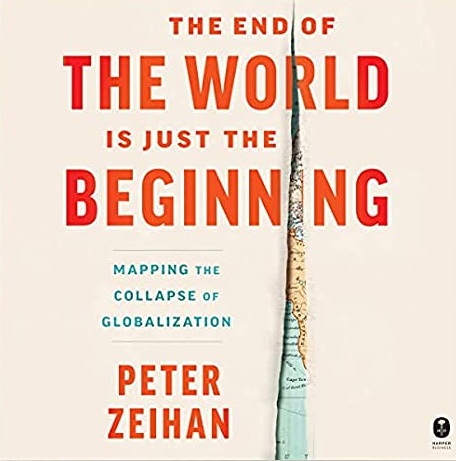 The End of the World is Just the Beginning is the fourth instalment from geopolitical strategist, Peter Zeihan. The book lays out his thesis that the US sponsored Bretton Woods world order (“the Order” for short) is going to collapse. With the Cold War over and an energy independent America, the superpower is no longer supporting globalisation. The bleakest prediction is around food: “…in excess of 1 billion people will starve to death, and another 2 billion will suffer chronic malnutrition.” He breaks down his argument into six sections; transportation, finance, energy, industrial materials, manufacturing, and agriculture. Zeihan’s approach lies in assessing how geography and demographics impact a nation’s political fortunes. He shares his analysis of Turkey, Iran, and Saudi Arabia. For example, he predicts Turkey will dominate the Mediterranean. However, he also points out that the country is exposed financially – with credit expanding a factor of 12 from 2000 to 2013. The book is valuable in breaking down geopolitics into tangible components that any lay person can appreciate. Moreover, it helps to see how fragile “the Order” actually is. Zeihan himself admits that the Achilles heel of Capitalism is growth. The pro-GDP consumer economy that is with us is no longer viable: “Demographics tells us that the number and collective volume of mass-consumption-driven economies has already peaked. In 2019 the Earth for the first time in history had more people aged sixty-five and over than five and under. By 2030 there will be twice as many retirees, in relative terms.” Consequently, for those who want to understand why the current world is unsustainable and ripe for a ‘New Order’, Zeihan is a must read – even if you disagree with his conclusions.
The End of the World is Just the Beginning is the fourth instalment from geopolitical strategist, Peter Zeihan. The book lays out his thesis that the US sponsored Bretton Woods world order (“the Order” for short) is going to collapse. With the Cold War over and an energy independent America, the superpower is no longer supporting globalisation. The bleakest prediction is around food: “…in excess of 1 billion people will starve to death, and another 2 billion will suffer chronic malnutrition.” He breaks down his argument into six sections; transportation, finance, energy, industrial materials, manufacturing, and agriculture. Zeihan’s approach lies in assessing how geography and demographics impact a nation’s political fortunes. He shares his analysis of Turkey, Iran, and Saudi Arabia. For example, he predicts Turkey will dominate the Mediterranean. However, he also points out that the country is exposed financially – with credit expanding a factor of 12 from 2000 to 2013. The book is valuable in breaking down geopolitics into tangible components that any lay person can appreciate. Moreover, it helps to see how fragile “the Order” actually is. Zeihan himself admits that the Achilles heel of Capitalism is growth. The pro-GDP consumer economy that is with us is no longer viable: “Demographics tells us that the number and collective volume of mass-consumption-driven economies has already peaked. In 2019 the Earth for the first time in history had more people aged sixty-five and over than five and under. By 2030 there will be twice as many retirees, in relative terms.” Consequently, for those who want to understand why the current world is unsustainable and ripe for a ‘New Order’, Zeihan is a must read – even if you disagree with his conclusions.
Malik Abu Luqman
The Power of Geography: Ten Maps That Reveal The Future of Our World
By Tim Marshall
2021
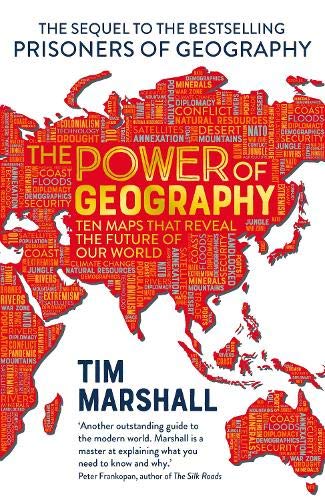 The Power of Geography is Tim Marshall’s latest jewel for the readers of geopolitics. In the area of geopolitical understanding, Tim Marshall needs no introduction. The book is the sequel of his global bestseller “Prisoners of Geography”. In his previous book, he showed how the choices of leaders and generals are limited by geography. He also showed how geography hasn’t changed but the world has. The sequel “The Power of Geography” explores ten countries that are set to shape the coming decades of the 21st century, a new age of great power rivalry. Australia, Iran, Saudi Arabia, the UK, Greece, Turkey, Ethiopia and Spain are the countries which get attention in the book. These nations are already directly and indirectly involved in great power rivalry of the century. The Power of Geography lays out the role geography plays in making sense of a nation. The language is easy to follow although it’s a dense book. This would be my only criticism, the book says a lot but provides little in the way of maps, imagery or graphics which would help a reader interested in geopolitical analysis.
The Power of Geography is Tim Marshall’s latest jewel for the readers of geopolitics. In the area of geopolitical understanding, Tim Marshall needs no introduction. The book is the sequel of his global bestseller “Prisoners of Geography”. In his previous book, he showed how the choices of leaders and generals are limited by geography. He also showed how geography hasn’t changed but the world has. The sequel “The Power of Geography” explores ten countries that are set to shape the coming decades of the 21st century, a new age of great power rivalry. Australia, Iran, Saudi Arabia, the UK, Greece, Turkey, Ethiopia and Spain are the countries which get attention in the book. These nations are already directly and indirectly involved in great power rivalry of the century. The Power of Geography lays out the role geography plays in making sense of a nation. The language is easy to follow although it’s a dense book. This would be my only criticism, the book says a lot but provides little in the way of maps, imagery or graphics which would help a reader interested in geopolitical analysis.
Umar Ahmed
Pakistan: A Hard Country
Anatol Lieven
2012
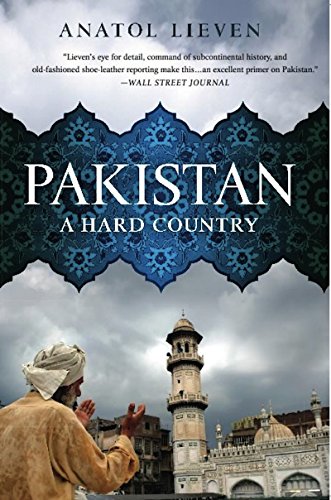 With the instability in Pakistan and removal of Imran Khan in a vote of no confidence in 2022 every political analyst needs to make sense of Pakistan and its complex history. In a short period of time Anatol Lieven’s book doesn’t just succeed but excels. Lieven was a reporter for the Times in Pakistan in the late 1980s and has supplemented his early experience of the country with extensive recent travels, including to a village of Taliban sympathisers in the North West Frontier, and conversations with an impressive cross-section of Pakistan’s population: farmers, businessmen, landowners, spies, judges, clerics, politicians, soldiers and jihadis. He commands a cosmopolitan range of reference – Irish tribes, Peronism, South Korean dictatorships, and Indian caste violence – as he probes into “the reality of Pakistan’s social, economic and cultural power structures“. Lieven identifies Pakistan’s many centrifugal and centripetal forces: “Much of Pakistan is a highly conservative, archaic, even sometimes inert and somnolent mass of different societies.” He describes its regional variations; the restive Pashtuns in the west, the tensions between Sindhis and migrants from India in Sindh, the layered power structures of Punjab, and the tribal complexities of Balochistan. He discusses at length the varieties of South Asian Islam, and their political and social roles in Pakistani society. Lieven’s book is refreshingly free of the condescension that many western writers, conditioned to see their own societies as the apogee of civilization, bring to Asian countries, assessing them solely in terms of how far they have approximated western political and economic institutions and practices. Lieven overturns many prejudices, and gives general readers plenty of fresh analysis with which to see Pakistan.
With the instability in Pakistan and removal of Imran Khan in a vote of no confidence in 2022 every political analyst needs to make sense of Pakistan and its complex history. In a short period of time Anatol Lieven’s book doesn’t just succeed but excels. Lieven was a reporter for the Times in Pakistan in the late 1980s and has supplemented his early experience of the country with extensive recent travels, including to a village of Taliban sympathisers in the North West Frontier, and conversations with an impressive cross-section of Pakistan’s population: farmers, businessmen, landowners, spies, judges, clerics, politicians, soldiers and jihadis. He commands a cosmopolitan range of reference – Irish tribes, Peronism, South Korean dictatorships, and Indian caste violence – as he probes into “the reality of Pakistan’s social, economic and cultural power structures“. Lieven identifies Pakistan’s many centrifugal and centripetal forces: “Much of Pakistan is a highly conservative, archaic, even sometimes inert and somnolent mass of different societies.” He describes its regional variations; the restive Pashtuns in the west, the tensions between Sindhis and migrants from India in Sindh, the layered power structures of Punjab, and the tribal complexities of Balochistan. He discusses at length the varieties of South Asian Islam, and their political and social roles in Pakistani society. Lieven’s book is refreshingly free of the condescension that many western writers, conditioned to see their own societies as the apogee of civilization, bring to Asian countries, assessing them solely in terms of how far they have approximated western political and economic institutions and practices. Lieven overturns many prejudices, and gives general readers plenty of fresh analysis with which to see Pakistan.
Shaharyar Najam
Command: The Politics of Military Operations from Korea to Ukraine
Lawrence Freedman
2022
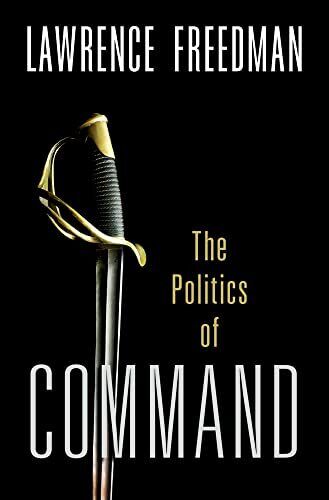 In this new volume Lawrence Freedman, who has been described as the “dean of British strategic studies” who was a member of the Iraq Inquiry (2009), as well as Emeritus Professor of War Studies at King’s College London. He examines the relationship between political and military leadership in post-World War II wartime via a series of case studies. He delves into the details of conflicts such as Vietnam, the Falklands (where he wrote the official history), Korea, French Indochina and others, right up to the prelude to the Ukraine war today. Each case study draws a picture of how conflicts ignite and how the politics, the personalities and the events evolve. From General de Gaulle’s role in Algeria and that of General MacArthur in Korea, through to Saddam Hussein in Iraq and Boris Yeltsin in Chechnya we see a colourful landscape of overlapping egos, clashing world views and spectacular mis-readings. Freedman finds that in autocracies the civil and the military are almost, but not entirely, as one. In the Soviet Union and in China the military was always subordinated to the Communist party. Decision making is usually easier than in democracies, though almost always more wrong. In democracies, civilian control of the military is a principle. The civilian leader may have been in the military, like many US and UK defence secretaries, but ministers have wider and deeper obligations than the uniformed chief. The politician may not know all the acronyms but must “…balance interests, coalition partners, international organisations…” and of course deal with the necessary trade-offs in any conflict. His conclusion that politics and the military, both in peace and conflict, are inextricably linked is almost self-evident. But his examination of the complexity of relationships at the top and how this plays out when wars start, throws up a host of lessons, good and bad. For any reader interested in previous conflicts, Freedman provides a deep and interesting political insight into how the wars were fought and how decisions were made and the breadth of case studies presented make this a worthwhile read.
In this new volume Lawrence Freedman, who has been described as the “dean of British strategic studies” who was a member of the Iraq Inquiry (2009), as well as Emeritus Professor of War Studies at King’s College London. He examines the relationship between political and military leadership in post-World War II wartime via a series of case studies. He delves into the details of conflicts such as Vietnam, the Falklands (where he wrote the official history), Korea, French Indochina and others, right up to the prelude to the Ukraine war today. Each case study draws a picture of how conflicts ignite and how the politics, the personalities and the events evolve. From General de Gaulle’s role in Algeria and that of General MacArthur in Korea, through to Saddam Hussein in Iraq and Boris Yeltsin in Chechnya we see a colourful landscape of overlapping egos, clashing world views and spectacular mis-readings. Freedman finds that in autocracies the civil and the military are almost, but not entirely, as one. In the Soviet Union and in China the military was always subordinated to the Communist party. Decision making is usually easier than in democracies, though almost always more wrong. In democracies, civilian control of the military is a principle. The civilian leader may have been in the military, like many US and UK defence secretaries, but ministers have wider and deeper obligations than the uniformed chief. The politician may not know all the acronyms but must “…balance interests, coalition partners, international organisations…” and of course deal with the necessary trade-offs in any conflict. His conclusion that politics and the military, both in peace and conflict, are inextricably linked is almost self-evident. But his examination of the complexity of relationships at the top and how this plays out when wars start, throws up a host of lessons, good and bad. For any reader interested in previous conflicts, Freedman provides a deep and interesting political insight into how the wars were fought and how decisions were made and the breadth of case studies presented make this a worthwhile read.
Adnan Khan
The Crown
Netflix
2016
 Whilst not a book, the award winning Netflix-original drama that chronicles the life of Queen Elizabeth II from the 1940s to modern times is a watch for those interested in British history in the post war era and the Royal family. Whilst a work of fiction, with the death of Queen Elizabeth II in September 2022 I was looking for an insight into the Royal family and how it tried to remain relevant in the modern era. What I found really useful with the Crown was the context for the drama is set around Britain’s Decline as a global power after WW2 and how the Royal family tries to remain relevant in this world. The first three seasons give a good insight into major British political events and the role of the royal family, season 4 and the recently released fifth season focus more on the internal family dynamics and challenges faced by the children of the queen. The Crown provides a good insight into how the Royal family attempts to remain relevant in an era when many do not see the relevance of the monarchy.
Whilst not a book, the award winning Netflix-original drama that chronicles the life of Queen Elizabeth II from the 1940s to modern times is a watch for those interested in British history in the post war era and the Royal family. Whilst a work of fiction, with the death of Queen Elizabeth II in September 2022 I was looking for an insight into the Royal family and how it tried to remain relevant in the modern era. What I found really useful with the Crown was the context for the drama is set around Britain’s Decline as a global power after WW2 and how the Royal family tries to remain relevant in this world. The first three seasons give a good insight into major British political events and the role of the royal family, season 4 and the recently released fifth season focus more on the internal family dynamics and challenges faced by the children of the queen. The Crown provides a good insight into how the Royal family attempts to remain relevant in an era when many do not see the relevance of the monarchy.
Mehvish Ali
The World at 8 Billion
Visual Capitalist
2022
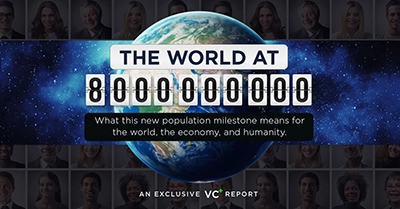 This report published by the team at the infographics and visual specialists visual capitalists, looks at the world’s population reaching 8 billion people and what this population milestone means for the world, the economy and humanity. The report is heavy on infographics but looks at how we got here, what the world looks at at 8 billion people, in terms of urbanisation, agriculture and how to support such numbers. There is a whole chapter on the impact such a large population will have on the world as well as consumption and the demand for energy. The report, aside from being easy on the eyes, does provide a data driven approach to the topic of demographics and provides a good insight into the challenges we will face going forward.
This report published by the team at the infographics and visual specialists visual capitalists, looks at the world’s population reaching 8 billion people and what this population milestone means for the world, the economy and humanity. The report is heavy on infographics but looks at how we got here, what the world looks at at 8 billion people, in terms of urbanisation, agriculture and how to support such numbers. There is a whole chapter on the impact such a large population will have on the world as well as consumption and the demand for energy. The report, aside from being easy on the eyes, does provide a data driven approach to the topic of demographics and provides a good insight into the challenges we will face going forward.
Massihollah Rohparwar
Principles for Dealing with the Changing World Order: Why Nations Succeed and Fail
Ray Dalio
2021
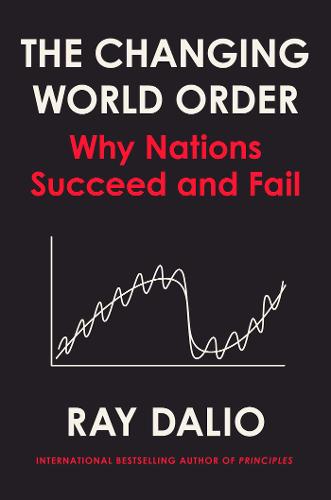 Ray Dalio is among the world’s most successful investors, and in his book, Principles for Dealing with the Changing World Order, he reveals how he and his colleagues at Bridgewater Associates choose investments for the future. His approach, however, is not what you would get from the standard-issue Wall Street stock picker. Dalio’s philosophical foundation for choosing investments is a sprawling, holistic study of how the world has worked over hundreds of years of history. What he found is that dominant empires inevitably rise and fall over long segments of time. Nothing is forever, including, as Dalio documents, America’s position as the leading world power today. Dalio explains that these cycles happen, and they make all the difference in which countries are rising and which are falling at any point in time. The book focuses on three major historical transitions: the rise of the Netherlands and its replacement by the United Kingdom, the replacement of the United Kingdom by the United States and the pending replacement of the United States by China. In his “Archetypical Big Cycle,” Dalio lists the forces that drive an empire’s rise are: a) relatively low levels of indebtedness; b) relatively small wealth, values, and political gaps between people; c) people working effectively together to produce prosperity; d) good education and infrastructure; e) strong and capable leadership; and f) a peaceful world order that is guided by one or more dominant world powers. The book also spends considerable time with explanations and insights on the full impact of money and credit on the rise and fall of empires. The historical examples are probably the best aspect of this book. It’s a high level look so much easier to grasp some of the key empires in recent history, how they got there and how they declined.
Ray Dalio is among the world’s most successful investors, and in his book, Principles for Dealing with the Changing World Order, he reveals how he and his colleagues at Bridgewater Associates choose investments for the future. His approach, however, is not what you would get from the standard-issue Wall Street stock picker. Dalio’s philosophical foundation for choosing investments is a sprawling, holistic study of how the world has worked over hundreds of years of history. What he found is that dominant empires inevitably rise and fall over long segments of time. Nothing is forever, including, as Dalio documents, America’s position as the leading world power today. Dalio explains that these cycles happen, and they make all the difference in which countries are rising and which are falling at any point in time. The book focuses on three major historical transitions: the rise of the Netherlands and its replacement by the United Kingdom, the replacement of the United Kingdom by the United States and the pending replacement of the United States by China. In his “Archetypical Big Cycle,” Dalio lists the forces that drive an empire’s rise are: a) relatively low levels of indebtedness; b) relatively small wealth, values, and political gaps between people; c) people working effectively together to produce prosperity; d) good education and infrastructure; e) strong and capable leadership; and f) a peaceful world order that is guided by one or more dominant world powers. The book also spends considerable time with explanations and insights on the full impact of money and credit on the rise and fall of empires. The historical examples are probably the best aspect of this book. It’s a high level look so much easier to grasp some of the key empires in recent history, how they got there and how they declined.
Mozimmal Hussain
AI Superpowers: China, Silicon Valley, and the New World Order
Kai-Fu Lee
2018
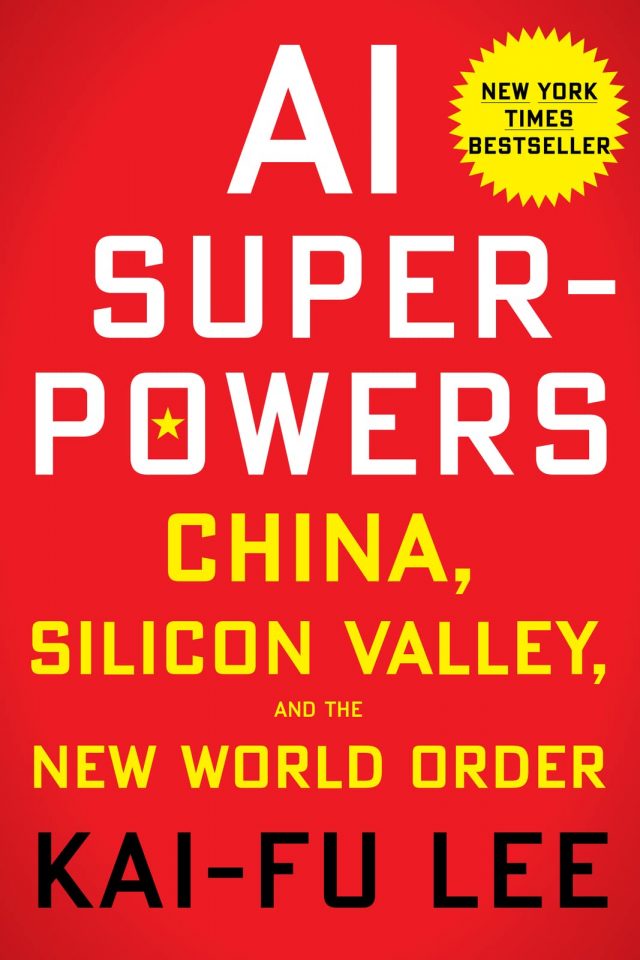 Every analyst of information technology now needs a strong understanding of Artificial intelligence (AI) to understand the extent of its impact on the world. AI is a branch of computer science devoted to creating computer systems that perform tasks characteristic of human intelligence. It’s one of the hottest topics around today and debate continues to rage about who is going to win the global race for AI, the US or China. The author Kai-Fu Lee, is one of the most influential people in the field of Artificial Intelligence. He worked at Apple in the early 1990s developing the first voice recognition system 25 years before Siri. He then set up Microsoft Research Asia, which trained the great majority of today’s AI leaders in China. Later he was president of Google China for 5 years. He is someone who knows the field of AI from both the Chinese and American side. Lee discusses AI and the US and Chinese companies competing for advantage. The second aspect of the book delves into the economic implications of AI. Lee believes China has a key advantage in AI; more data. Unlike Europe which has strict privacy laws, China is the exact opposite. This gives Chinese firms a big advantage, Lee argues, since “…there’s no data like more data.” On the economic aspect of AI, Lee assumes AI will replace about 40% – 50% of the jobs in the US in the next 15 years and that this will lead to massive unemployment. This is way more than every other study on the topic. This book gives a good insight into AI and will help anyone who wants to understand the basic principles of AI, why it’s so powerful and why we should be concerned about it.
Every analyst of information technology now needs a strong understanding of Artificial intelligence (AI) to understand the extent of its impact on the world. AI is a branch of computer science devoted to creating computer systems that perform tasks characteristic of human intelligence. It’s one of the hottest topics around today and debate continues to rage about who is going to win the global race for AI, the US or China. The author Kai-Fu Lee, is one of the most influential people in the field of Artificial Intelligence. He worked at Apple in the early 1990s developing the first voice recognition system 25 years before Siri. He then set up Microsoft Research Asia, which trained the great majority of today’s AI leaders in China. Later he was president of Google China for 5 years. He is someone who knows the field of AI from both the Chinese and American side. Lee discusses AI and the US and Chinese companies competing for advantage. The second aspect of the book delves into the economic implications of AI. Lee believes China has a key advantage in AI; more data. Unlike Europe which has strict privacy laws, China is the exact opposite. This gives Chinese firms a big advantage, Lee argues, since “…there’s no data like more data.” On the economic aspect of AI, Lee assumes AI will replace about 40% – 50% of the jobs in the US in the next 15 years and that this will lead to massive unemployment. This is way more than every other study on the topic. This book gives a good insight into AI and will help anyone who wants to understand the basic principles of AI, why it’s so powerful and why we should be concerned about it.
Anam Sultan
The Entrepreneurial State: Debunking Public vs. Private Sector Myths
Mariana Mazzucato
2013
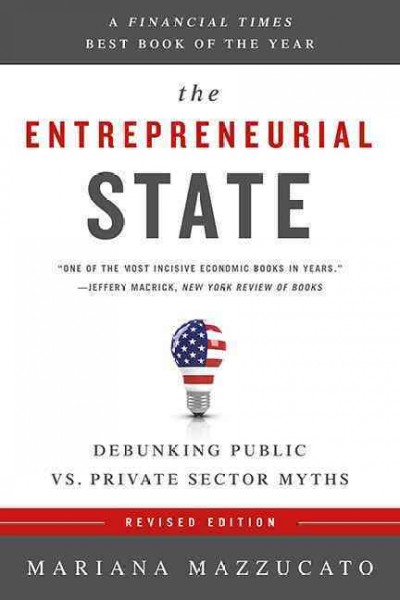 Mariana Mazzucato is considered one of the “most important thinkers about innovation.” Innovation is something usually held aloft as a trophy by market fundamentalists mocking the apparently dull imagination of the state. In Mazzucato’s analysis, the state is farsighted, while private companies are myopic; state-led scientists think twenty years ahead and corporate-led designers can only afford to prepare for the next three years. Mazzucato’s contention is that the state can play “...an entrepreneurial role…” in national economies, and that admitting this “…will help inform policies.” In her book she debunks the public vs private sector myths, arguing that patents are not the same as innovation, more research and development spending doesn’t necessarily mean more innovation, and venture capitalists are not quite the risk-takers they claim to be. In the US, choices to research nanotechnology and renewables were entirely made by state agencies, and had nothing to do with market forces. Such foresight, she argues, is needed to save Britain’s economy. To leave the direction of green energy technology to the market “only ensures that the energy transition will be put off until fossil fuel prices reach economy-wrecking heights.” The book examines how private sector achievements in innovation are often just icing on top of research paid for by states. All the revolutionary technologies making up the iPhone, and by extension all smart phones, are US state achievements. The Entrepreneurial State describes how neoliberalism is contradictory, carried on the stilts of laissez-faire rhetoric and special pleading for government funds, depending on what suits someone’s wallet best at the time. Without taxpayer-provided government funding to foster them and pave their way with gold, the mightiest corporations battling hard against their taxes would be naked and lost.
Mariana Mazzucato is considered one of the “most important thinkers about innovation.” Innovation is something usually held aloft as a trophy by market fundamentalists mocking the apparently dull imagination of the state. In Mazzucato’s analysis, the state is farsighted, while private companies are myopic; state-led scientists think twenty years ahead and corporate-led designers can only afford to prepare for the next three years. Mazzucato’s contention is that the state can play “...an entrepreneurial role…” in national economies, and that admitting this “…will help inform policies.” In her book she debunks the public vs private sector myths, arguing that patents are not the same as innovation, more research and development spending doesn’t necessarily mean more innovation, and venture capitalists are not quite the risk-takers they claim to be. In the US, choices to research nanotechnology and renewables were entirely made by state agencies, and had nothing to do with market forces. Such foresight, she argues, is needed to save Britain’s economy. To leave the direction of green energy technology to the market “only ensures that the energy transition will be put off until fossil fuel prices reach economy-wrecking heights.” The book examines how private sector achievements in innovation are often just icing on top of research paid for by states. All the revolutionary technologies making up the iPhone, and by extension all smart phones, are US state achievements. The Entrepreneurial State describes how neoliberalism is contradictory, carried on the stilts of laissez-faire rhetoric and special pleading for government funds, depending on what suits someone’s wallet best at the time. Without taxpayer-provided government funding to foster them and pave their way with gold, the mightiest corporations battling hard against their taxes would be naked and lost.
Nizal Hussain
Land Of Two Rivers: A History of Bengal From The Mahabharata To Mujib
Nitish Sengupta
2011
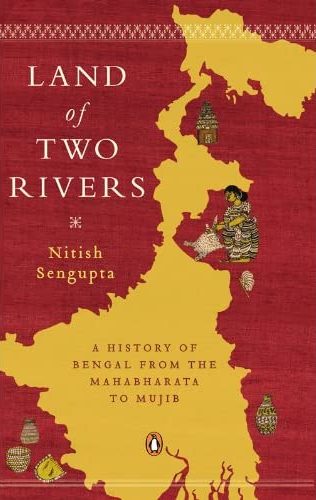 This book chronicles the story of the Bengal region in the Indian subcontinent. The confluence of two major river systems, Ganga and Brahmaputra, created the delta of Bengal—an ancient land known as a centre of trade, learning and the arts from the days of the Mahabharata and through the ancient dynasties. During the medieval era, this eventful journey saw the rise of Muslim dynasties which brought into being a unique culture, quite distinct from that of the rest of India. The colonial conquest in the eighteenth century opened the modern chapter of Bengal’s history and transformed the social and economic structure of the region. Nitish Sengupta traces the formation of Bengali identity through the Bengal Renaissance, the growth of nationalist politics and the complex web of events that eventually led to the partition of the region in 1947, analysing why, despite centuries of shared history and culture, the Bengalis finally divided along communal lines. The struggle of East Pakistan to free itself from West Pakistan’s dominance is vividly described, documenting the economic exploitation and cultural oppression of the Bengali people. Ultimately, under the leadership of Mujibur Rahman, East Pakistan became the independent nation of Bangladesh in 1971. Land of Two Rivers is a scholarly yet an accessible account of the development of Bengal.
This book chronicles the story of the Bengal region in the Indian subcontinent. The confluence of two major river systems, Ganga and Brahmaputra, created the delta of Bengal—an ancient land known as a centre of trade, learning and the arts from the days of the Mahabharata and through the ancient dynasties. During the medieval era, this eventful journey saw the rise of Muslim dynasties which brought into being a unique culture, quite distinct from that of the rest of India. The colonial conquest in the eighteenth century opened the modern chapter of Bengal’s history and transformed the social and economic structure of the region. Nitish Sengupta traces the formation of Bengali identity through the Bengal Renaissance, the growth of nationalist politics and the complex web of events that eventually led to the partition of the region in 1947, analysing why, despite centuries of shared history and culture, the Bengalis finally divided along communal lines. The struggle of East Pakistan to free itself from West Pakistan’s dominance is vividly described, documenting the economic exploitation and cultural oppression of the Bengali people. Ultimately, under the leadership of Mujibur Rahman, East Pakistan became the independent nation of Bangladesh in 1971. Land of Two Rivers is a scholarly yet an accessible account of the development of Bengal.
Kazi Ahmed
Blueprint for Revolution: How to Use Rice Pudding, Lego Men, and Other Nonviolent Techniques to Galvanise Communities, Overthrow Dictators, or Simply Change the World
Srdja Popovic
2015
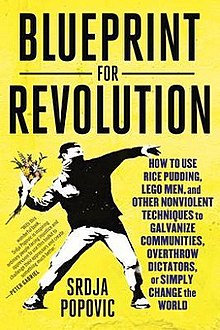 This is a book for activists who want to change the world. It’s written by Srjdja Popovic, one of the Serbian protestors who overthrew Slobodan Milosevic and then went on to train protest movements around the world. Popovic comes from the non-violent school of thought and believes while revolutions have been bloody and devastating, there are many examples of non-violent revolutions, such as Gandhi’s non-violent fight for independence from British rule and the overthrow of Slobodan Milošević’s dictatorship which he participated in. He outlines a number of non-violent strategies, speckled through history that prove that change can be brought about peacefully. His book outlines his non-violent methods for a successful revolution. The first of these are branding. Branding really matters, he argues. “We wanted Serbs to have a visual image they could associate with our movement, so they went for a clenched fist. Every dictator is a brand. We need a brand that is better than theirs.” The other strategy is to dream big, have a compelling and “…positive vision of tomorrow, but start small. Find tactics that will prove “we are the many and they are the few”, without getting you “killed or roughed up too badly.” Gene Sharp, the godfather of nonviolent revolutions believed removing one pillar from the “pillars of power” in any nation, the regime would topple. But dictatorships are different. Dictatorships have a single important pillar of power – the economy. Finance is needed by the dictator for everything ranging from spreading propaganda to creating armies. If the source of finance is cut off, a dictator is unable to defend the regime and is thus vulnerable. This book is littered with examples from revolutions and uprisings to prove its methods and this makes it an interesting read. With social unrest boiling up in the Middle East this book outlines that in order to bring about a real positive change in the world, one can protest without violence. All one needs is creativity, a compelling vision of the future, and peaceful means that will appeal to the masses.
This is a book for activists who want to change the world. It’s written by Srjdja Popovic, one of the Serbian protestors who overthrew Slobodan Milosevic and then went on to train protest movements around the world. Popovic comes from the non-violent school of thought and believes while revolutions have been bloody and devastating, there are many examples of non-violent revolutions, such as Gandhi’s non-violent fight for independence from British rule and the overthrow of Slobodan Milošević’s dictatorship which he participated in. He outlines a number of non-violent strategies, speckled through history that prove that change can be brought about peacefully. His book outlines his non-violent methods for a successful revolution. The first of these are branding. Branding really matters, he argues. “We wanted Serbs to have a visual image they could associate with our movement, so they went for a clenched fist. Every dictator is a brand. We need a brand that is better than theirs.” The other strategy is to dream big, have a compelling and “…positive vision of tomorrow, but start small. Find tactics that will prove “we are the many and they are the few”, without getting you “killed or roughed up too badly.” Gene Sharp, the godfather of nonviolent revolutions believed removing one pillar from the “pillars of power” in any nation, the regime would topple. But dictatorships are different. Dictatorships have a single important pillar of power – the economy. Finance is needed by the dictator for everything ranging from spreading propaganda to creating armies. If the source of finance is cut off, a dictator is unable to defend the regime and is thus vulnerable. This book is littered with examples from revolutions and uprisings to prove its methods and this makes it an interesting read. With social unrest boiling up in the Middle East this book outlines that in order to bring about a real positive change in the world, one can protest without violence. All one needs is creativity, a compelling vision of the future, and peaceful means that will appeal to the masses.
Adnan Khan


